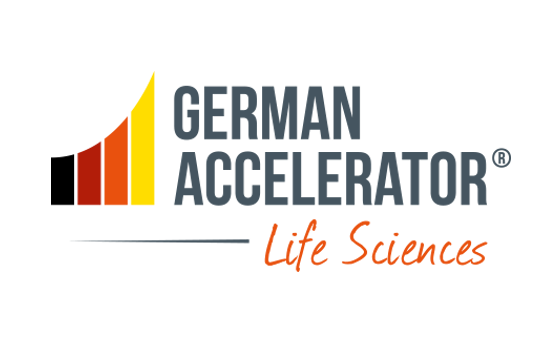 German Accelerator Life Sciences Alumni company, SpinDiag, just announced the successful closing of 3 million Series A funding round. The Freiburg-based health tech startup addresses the challenge of patients introducing drug-resistant bacteria into hospitals. SpinDiag provides a rapid point-of-care screening system, SpinDiag one, to test high-risk patients for all relevant drug-resistances.
German Accelerator Life Sciences Alumni company, SpinDiag, just announced the successful closing of 3 million Series A funding round. The Freiburg-based health tech startup addresses the challenge of patients introducing drug-resistant bacteria into hospitals. SpinDiag provides a rapid point-of-care screening system, SpinDiag one, to test high-risk patients for all relevant drug-resistances.
The German Accelerator Life Sciences (GALS) program with its experienced mentor team and extensive network of partners and industry experts, contributed to the development of SpinDiag's U.S. regulatory and market access strategy.
"We greatly enjoyed working with GALS. We had the opportunity to work with highly competent experts in our field and learn a lot about the U.S. market and regulatory processes," said Daniel Mark, CEO and Co-Founder of SpinDiag. "With the recent closing of our Series A financing round, successful pilot experiments and all pieces coming together, we are looking forward to entering clinical validation in Europe next year. Following that, receiving FDA approval and entering the U.S. market is an exciting prospect. We will start tackling this challenge in the near future."
"It was a great pleasure working with such a young, dynamic, and engaged team as SpinDiag," commented Steven Laken, GALS Strategic Lead. "As we worked with them through U.S. quality and regulatory guidelines, seeing the great headway the company made within the GALS program was truly impressive. This will set them up for their EU market entry, but it has also laid out the strategic groundwork SpinDiag will need for their U.S. regulatory approval and market access strategy."
"We congratulate SpinDiag on successfully closing their Series A. GALS is proud to have contributed to SpinDiag's success. We will maintain to be a sparring partner for SpinDiag within the context of the Alumni program," commented Christoph Lengauer, CEO of the German Accelerator. He adds: "The work we did with SpinDiag is a beautiful example on the strength of the GALS program in bringing the right people with an in-depth know-how of the sector together. Steve and his team, including Barry Berger, Bill Pignato, and David Deems, are all seasoned experts in bringing diagnostics to the market. They helped SpinDiag achieve an important milestone in record time."
SpinDiag's technology can easily be extended beyond the initial test for drug resistance and therefore has high potential for clinical impact. The aptitude of SpinDiag's technology and the strength of their team is also reflected in the multitude of awards they have been granted. Amongst many others, some of the most prestigious and recent accomplishments of SpinDiag are: being a finalist in the "health and well-being" group at DeepTech4Good in 2018, Molecular Med Tri-Con "Swimming with the Sharks" in 2017, and receiving the Medtech cluster award by B. Braun at code_n in 2016.
About SpinDiag
SpinDiag is a German start-up company. Our first product focuses on preventing the spread of antibiotic-resistant bacteria in hospitals. Fast and easy detection of all relevant antibiotic-resistant bacteria in patients during admission allows efficient and safe quarantine decisions. SpinDiag thus enables a safe and economical admission process without an expensive quarantine of risk patients on suspicion and without risking the spread of potentially lethal antibiotic-resistant bacteria in hospitals.
About the German Accelerator Life Sciences
The German Accelerator Life Sciences (GALS) program empowers German life sciences startups and young companies to successfully enter the global marketplace. GALS offers support in multiple areas: from operational assistance, such as office setup in the world's leading life science innovation hub, to mentoring and strategy advice by industry experts and experienced leaders. GALS opened its doors in October 2015 and is headquartered in Cambridge, Massachusetts.